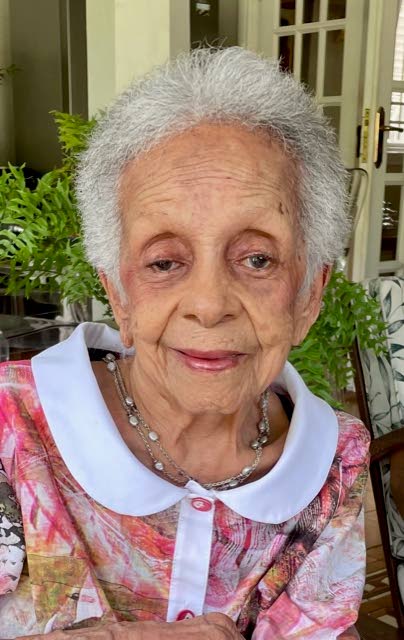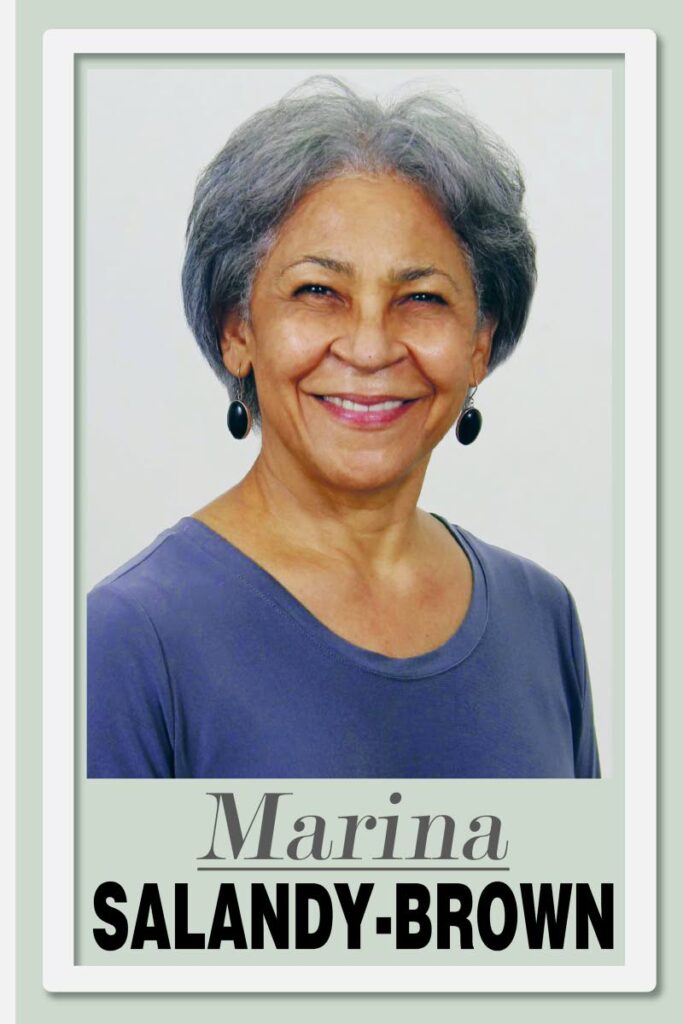The experience of life

On Tuesday, March 26, my beloved mother, Honora Marie Salandy, passed away. It was unexpected to the extent that I thought her resilience would enable her to pull through what turned out to be her final bout of illness.
However, it was not surprising. Regular readers of this column might remember that she was its subject when we celebrated her 100th birthday in 2021.
I feel compelled to write about her again because her dying is one of the most significant events of my life. The experience of motherhood, and fatherhood too, I would say, is something we do not dwell upon, yet it is so fundamental to us as beings.
It has been the most extraordinary privilege to have lived with my mother for her last 20 years and to witness her settling into graceful agedness and her gentle decline over the last year.
It was also my great fortune to care for her during her last night. One of the stresses of the last two years had been fear of being the one to come upon her cold, lifeless body. Each morning I would gingerly approach her, check her breathing, and feel huge relief when she was still warm and responsive.
As it turned out, I did find her lifeless body when I awoke from a short dawn nap on that Tuesday morning, but the experience was nothing like I had anticipated.
I am not a natural carer – could never have been a nurse, lacking mainly the patience required – but as it turned out, it was just her and me, and she extracted every ounce of my tenderness during those hours of final care. I was able to summon up all the physical strength needed to handle her small, delicate frame, made heavy by her unyielding muscles. I felt she was trying to help me, and my feeling of love for her came in gushes.
My mother did not really want to die. She loved life, and she remained mentally alert to the very end, but her body could no longer respond adequately to her brain and her formidable will.
I imagine, however, that she would have decided exactly when to draw her last breath. She did so as I napped nearby, and not long before I was due to tend to her again, so that finding her limbs floppy, and no heartbeat or pulse, did not unnerve me. It became just an extension of caring for her, for which I am eternally grateful. It was a gentle transition from life to death.
As I straightened her body and tied up her jaw and put her toes together I sensed that she knew what I was doing. I still sensed her consciousness as the funeral home came to remove her body an hour or so later.
Death is not something we relish discussing or even thinking about, yet it is so much part of life, an extension of it, I would say after experiencing my mother’s demise. We understand very little about it and have created much mythology around it in order to cope with our ignorance.
A friend thoughtfully sent me an article published in the UK Guardian about new research on the dying brain which echoes my thoughts on the subject.
It seems the line between life and death may be less distinct than previously thought. After decades of work, researchers have been unable to shed much light on when death actually occurs, but the body of irrefutable evidence is growing.
Apparently, several international surveys and studies show that one in ten people claims to have had a near-death experience involving cardiac arrest, or a similar experience in similar circumstances where they may have come close to death and briefly lived outside their bodies. That’s 800 million experiences of consciousness existing independently of the brain. It is enough for the study of consciousness and near-death experiences to have become legitimate fields of academic study in the last 50 years.

What is known is that death does not occur once oxygen to the brain stops because the brain does not cease functioning immediately. There can be surges of activity in different areas of the brain.
But none of that insight is helpful for us who remain. We must deal with the aching lost presence of our loved ones and friends. We must find solace in recalling them and find ways to integrate their absence into our present.
Dozens of people die every day, recently I have known several personally, among them friends, writers, jurists, scholars, cultural activists, publishers, editors, and fellow Newsday columnists BC Pires and Reggie Dumas. I find it impossible to delete the e-mails and other messages from the recently departed or to remove them from my contacts list. It just feels too final.
Trinidad and Tobago’s annual literary festival, the NGC Bocas Lit, is dedicated to recalling the lives and important contributions of our departed literary luminaries. It will do so again during its 14th iteration (www.bocaslitfest.com, April 25-28) this time for the likes of Gordon Rohlehr, Seepersad Naipaul, Jerry Besson, Brinsley Samaroo, Michael Anthony, and BC Pires.

Comments
"The experience of life"